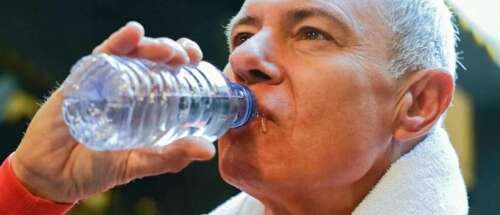
The idea of fluid metabolism is a key one in the understanding of many health issues in East Asian Medicine (EAM). A person with healthy organ systems takes in fluids through food and drink, which are purified and dispersed to all the body in order to moisten, nourish and lubricate the tissues.
When one or more of the organ systems become imbalanced the movement of fluids around the body can be affected, leading to improper distribution and the body’s inability to use those fluids effectively. Depending on how out of balance the body is, symptoms can show up along a scale of severity from a fairly mild foggy feeling to more severe issues, like tumors and growths. Problems with bodily fluids can manifest in any of the following symptoms: foggy thinking, frequent urination, runny nose (clear or yellow discharge), edema, congested sinuses, phlegm that is difficult to expectorate, lipomas, cysts or tumors.
Several organ systems can play a role in fluid metabolism in EAM.
Spleen – The spleen system transforms the food and drink we ingest into usable energy (qi) and fluids for the body, while also transporting the fluids to nourish the tissues. Conditions like excessive worry, emotional stress and consumption of cold / raw foods can weaken the spleen’s ability to process fluids leading to dampness in the body. This can manifest as bloating, fatigue, loose stools and fluid retention.
Lungs – The lung system takes clear fluids from the spleen to the skin for moisturizing, while sending turbid fluids to the large intestine and bladder systems for elimination. The lungs receive purified fluids from the spleen and disperses the through the body. Grief and sadness, eating greasy, fried or sugary foods, as well as prolonged exposure to excessive dryness or excessive dampness can cause problems with the lungs ability to process fluids. This can manifest as a dry cough, nosebleeds, dry skin and more.
Kidneys – The kidney system governs water metabolism, receiving fluids from the spleen and lungs to distribute and filter it, ultimately separating clear fluid for the body from turbid fluids for excretion. Fear, chronic overwork, poor diet and aging can weaken the kidney’s ability to process fluids accordingly. This can appear as dry skin and eyes, anxiety, decreased menstrual flow, edema, etc.
San Jiao – The san jiao system is responsible for the overall distribution and regulation of fluids in the body. All of the aforementioned afflictions within the spleen, lung and kidney systems can affect the san jiao because the san jiao is comprised of components that encompass all areas of the body. The upper jiao regulates everything from the heart up, the middle jiao regulates everything between the heart and the belly button and the lower jiao regulates everything below the belly button.
Most health complaints concerning fluids fall under three main types, excessive fluids, stuck fluids or deficient fluids.
1. Excessive Fluids / Dampness – Implies that this is a buildup of too much liquid in the body in places where it is not supposed to collect. Common ailments in this group include puffiness, edema, heavy feelings, lethargy, chronic cough, running nose (sinus irritation) with clear thin mucus, diarrhea, cloudy urine or discharges.
2. Stuck Fluids / Phlegm – EAM describes several forms of phlegm, as it is a major culprit in many disease processes in this medicine. There’s the obvious phlegm of a chronic sinus issue or bronchitis. It’s usually sticky and difficult to get rid of. Then, there is the idea of more “hidden” phlegm that collects internally. This can describe lipomas, cysts, tumors, arterial plaque and excess cholesterol, even the calcifications that build up on joints in arthritic conditions. Some mental / emotional issues can have a phlegm component to them as well, usually with foggy or confused thinking or mental dullness.
3. Deficient Fluids / Dryness – Somewhat different than the other two, but still a problem is the issue of not enough fluids. This can result from simply not drinking enough water, but sometimes we see patients who’s fluid intake is pretty good, yet they have complaints of dryness. Some of the main complaints of this type are dry skin, eyes, mouth, sinuses, constipation, muscle and tendon tightness and inflexibility, heat sensations and hot flashes and loss of range of movement in one or several joints (not related to injury).
Each of these can have a lot to do with our eating and drinking habits and often can be positively affected by changes in diet and lifestyle. Usually by the time symptoms have become really bothersome, additional interventions, such as acupuncture and herbs are great modalities to help handle the problem. If you are dealing with any of the aforementioned symptoms or just feel like your body isn’t metabolizing effectively, consider EAM and schedule an appointment. It may take some time, but it will be worth it.

